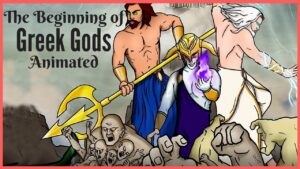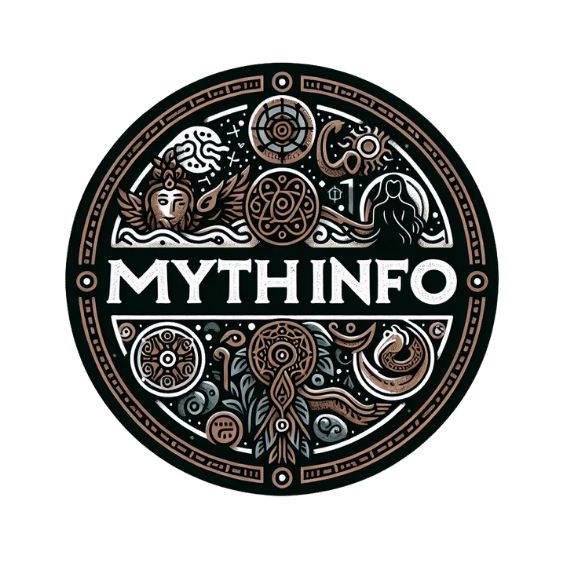
Greek mythology, with its pantheon of gods, heroes, and epic tales, has fascinated people for centuries. From ancient Greece to modern times, these myths have evolved and adapted, reflecting cultural changes and new storytelling techniques. In 2024, modern media is playing a pivotal role in revitalizing and reinterpreting these ancient legends. This article explores how contemporary platforms are breathing new life into Greek mythology and why this resurgence matters.
The Enduring Appeal of Greek Mythology
Greek mythology offers a rich tapestry of stories that explore fundamental human experiences, such as love, power, fate, and revenge. The timeless nature of these myths is one reason why they continue to captivate audiences. Characters like Zeus, Athena, and Hercules, and tales such as the Odyssey and the Iliad, resonate due to their dramatic narratives and moral lessons. This universal appeal ensures that Greek mythology remains relevant even in the modern era.
Modern Media’s Influence on Mythology
1. Television and Streaming Platforms
Television series and streaming platforms have become powerful mediums for storytelling. Shows like “Percy Jackson & The Olympians” and “The Sandman” are contemporary adaptations of Greek myths, blending traditional tales with modern sensibilities. These series not only introduce Greek mythology to new generations but also offer fresh interpretations that appeal to today’s audiences.
For example, the “Percy Jackson & The Olympians” series on Disney+ has successfully translated Rick Riordan’s popular book series into a visual format, drawing on the original Greek myths while updating the story for a younger audience. This adaptation helps to keep the ancient legends alive and relevant.
2. Film and Animation
Film and animation have long been vehicles for mythological storytelling. Recent releases like “Tales of the Gods” and “Hercules: The Animated Series” use cutting-edge visual effects and storytelling techniques to bring Greek myths to life. Animated films and series offer a unique way to explore these myths, making them accessible to audiences of all ages.
Films like Disney’s “Hercules” and Netflix’s “Clash of the Titans” showcase the enduring fascination with Greek mythology, blending action, adventure, and humor to engage viewers. These adaptations often take creative liberties, reshaping the myths to fit contemporary tastes while retaining their core elements.
3. Video Games
Video games represent another significant avenue for reviving Greek mythology. Titles such as “God of War” and “Assassin’s Creed Odyssey” immerse players in ancient Greece, allowing them to interact with mythological characters and environments. These games offer a hands-on experience of Greek myths, enabling players to explore legendary quests and divine conflicts.
The success of these games highlights the ongoing interest in Greek mythology and demonstrates how interactive media can bring ancient stories to life in new and engaging ways.
The Role of Social Media and Online Communities
Social media platforms and online communities also play a crucial role in the revival of Greek mythology. Platforms like Instagram, YouTube, and TikTok have become spaces where enthusiasts share content related to Greek myths, including fan art, educational videos, and discussions.
These platforms facilitate the spread of mythological knowledge and foster communities of enthusiasts who engage with and reinterpret ancient stories. For instance, popular YouTube channels like CrashCourse offer educational content about Greek mythology, making it accessible and engaging for viewers.
Educational and Cultural Impact
1. Educational Programs
Modern media’s revival of Greek mythology extends into educational programs and resources. Schools and universities often use contemporary adaptations to teach students about ancient Greek culture and literature. By incorporating popular media representations, educators can make these lessons more engaging and relatable.
For example, educators might use clips from “Percy Jackson & The Olympians” to illustrate aspects of Greek mythology, providing students with a visual and interactive learning experience. This approach helps students connect with the material and appreciate its relevance.
2. Cultural Relevance
The modern revival of Greek mythology through media also contributes to cultural discourse. By reimagining ancient myths, creators explore contemporary issues and themes, such as identity, power, and morality. This reinterpretation allows audiences to reflect on these timeless stories in the context of modern values and experiences.
For instance, recent adaptations often address themes of gender equality and diversity, providing a platform for discussions about how ancient myths can be understood in light of current social issues.
Conclusion
The evolution of Greek mythology in 2024 demonstrates the
adaptability and enduring relevance of these ancient stories. Through television, film, animation, video games, and social media, modern media is revitalizing Greek myths and introducing them to new audiences. This revival not only preserves the legacy of Greek mythology but also ensures its continued relevance in a rapidly changing world. As we move forward, the intersection of ancient legends and modern media will undoubtedly continue to shape our understanding and appreciation of these timeless tales.


